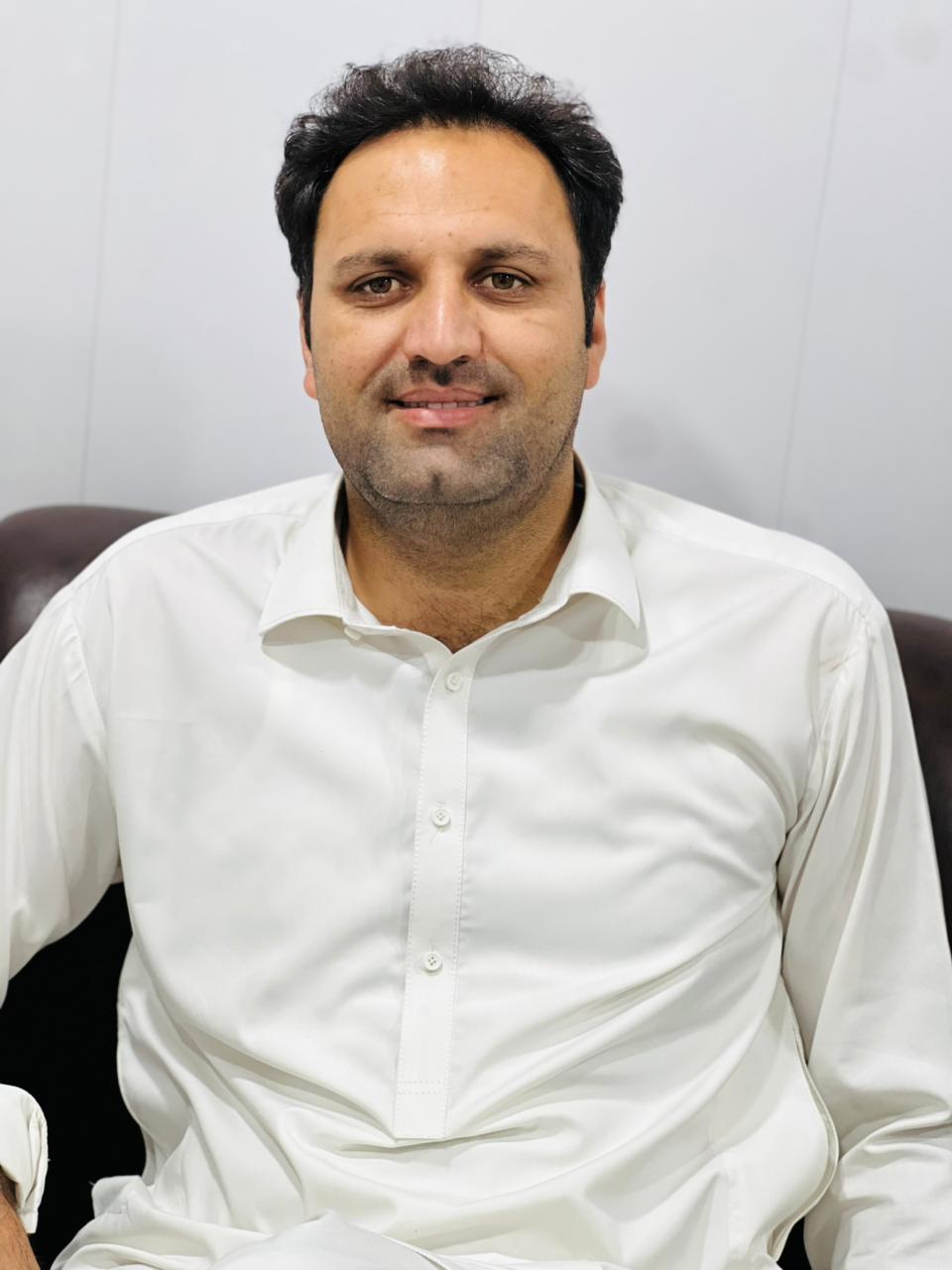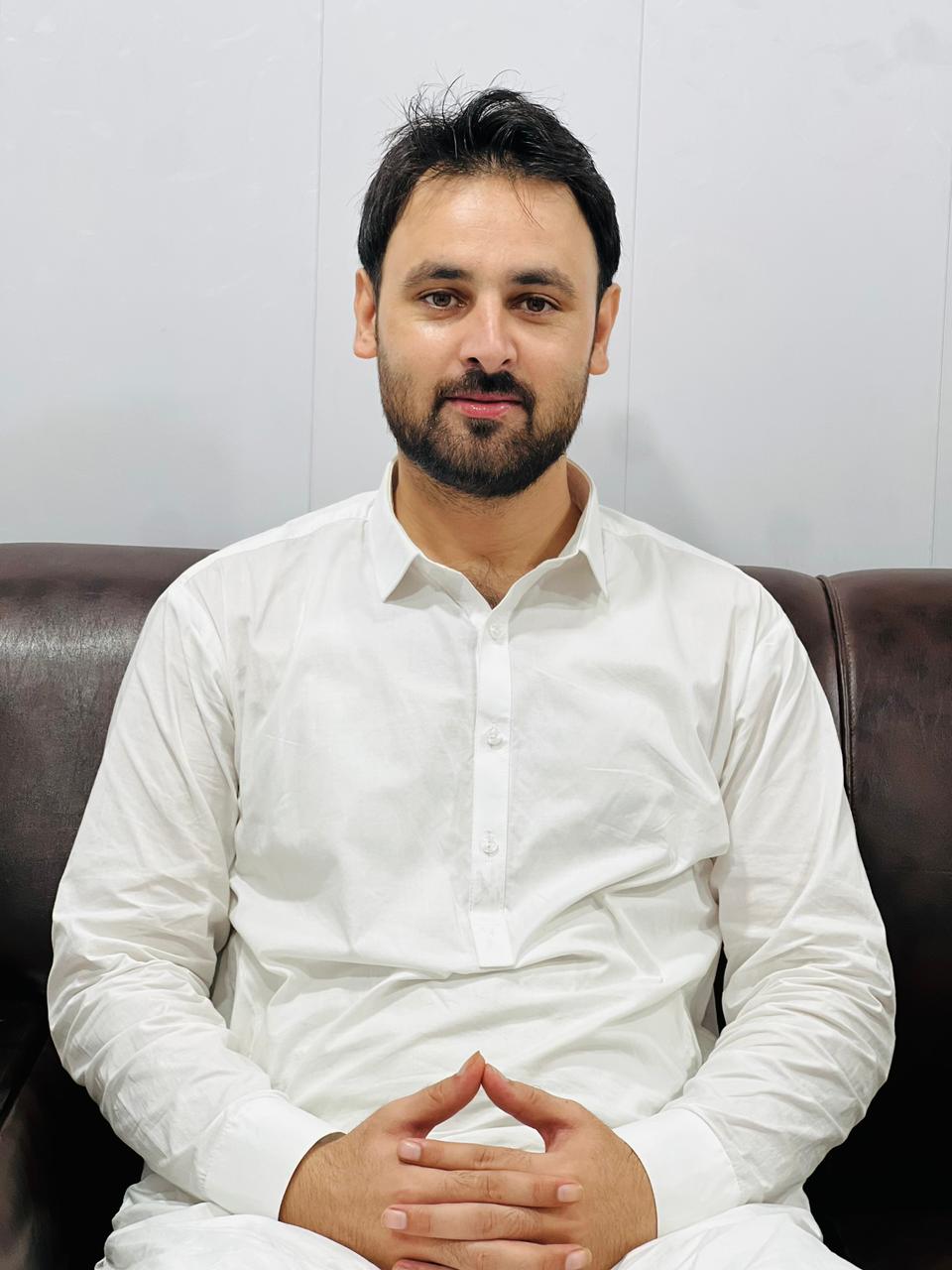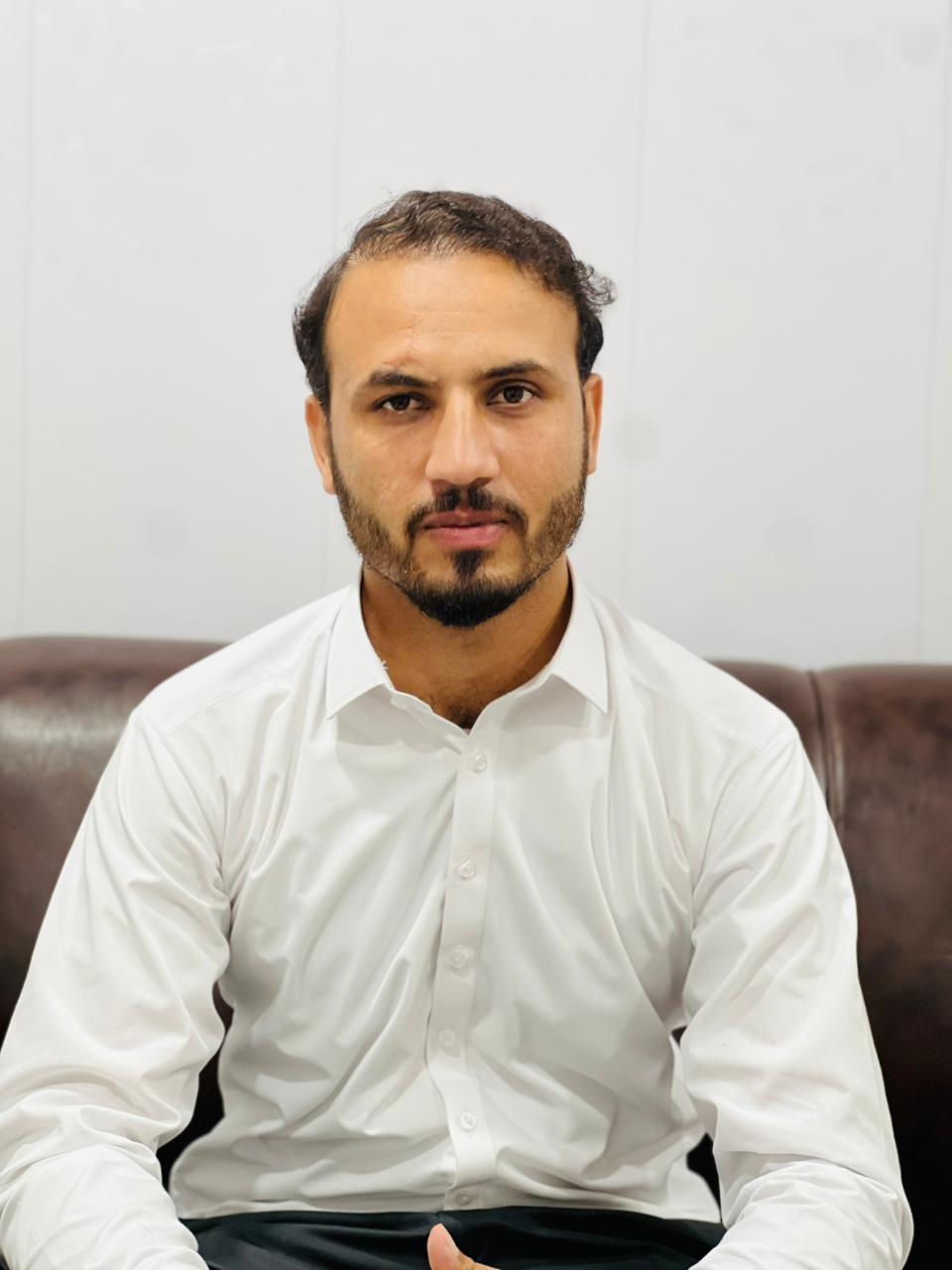Bachelor of Science in Nursing (BSN)
The BSN programme equips students with the knowledge, skills and attitude needed to practice nursing. It is designed to prepare clinically competent professional nurses. Graduates are able to utilize critical thinking in providing holistic nursing care and play a role as change agents in nursing practice and education in any health-care setting.
This is a four-year academic programme with a mandatory one-year internship. At the conclusion of five years, students are required to apply for the PN&MC licence of Registered Nurse.
Eligibility Criteria (2025 & onwards)
- In line with PN&MC, applicants may apply if their age is within 14–35 years.
- HSSC (Pre-Medical) with a minimum of 50% marks or equivalent.
- SSC or equivalent with Biology, Chemistry and Physics as compulsory subjects.
- Must have appeared in the KMU CAT and obtained at least 50% marks.
Faculty Members

Mr. Ihsan Ullah
Nursing Principal
MSN (AKU), MPH (KMU), BSN (KMU), BLS, ACLS (AHA)

Mr. Aziz ur Rahman
Vice Principal / Assistant Professor
MSN (KMU), BSN (Gold Medalist)
Mr. Wali Muhammad
Lecturer
BSN (KMU)

Mr. Ahsan Nazar
Senior Lecturer
BS in Nursing (Shifa Int’l Univ.)

Ms. Naeema Nazir
Lecturer
BSN (KMU)

Ms. Kainat Anwar
Lecturer
Post RN Nursing (KMU)

Ms. Mushtry Ghulam
Lecturer
Post RN Nursing (KMU)

Mr. Mazhar Hussain
Lecturer (English)
MPhil English (American Studies)

Mr. Gul Baddin
Lecturer
BSN (KMU)

Mr. Khushal Khan
Lecturer
BSN (KMU)
Program Learning Outcomes
Knowledge
- Evidence-based practice: Formulate nursing decisions using scientific research, evidence-based protocols and appropriate data sources.
- Quality improvement: Participate in strategies that use data to design, implement and evaluate outcomes for safer, higher-quality health-care systems.
Competences / Skills
- Core knowledge: Provide culturally sensitive physical, emotional and psychological care to diverse populations for health promotion, maintenance and restoration.
- Technology integration: Understand the impact of health-care policy, finance and regulation on care delivery.
Values
- Teamwork & collaboration: Work with inter-professional teams, patients and support systems to improve health outcomes.
- Leadership & management: Contribute to evidence-based nursing through continuous improvement processes and outcome evaluation.
- Health-care policy: Recognize policy, finance and regulatory influences on nursing practice.
- Population-based care: Consider community and population needs when planning and delivering care.
Scheme of Studies (4 Years + 1 Year Internship)
| S.N. | Course | Category | Theory | Clinical | Skills/Lab | Credits |
|---|---|---|---|---|---|---|
| 1 | Microbiology | GE (NS) | 1.5 | - | 0.5 | 2 |
| 2 | Biochemistry | GE | 1.5 | - | 0.5 | 2 |
| 3 | Functional English | GE | 3 | - | - | 3 |
| 4 | Fundamentals of Nursing – I | Major | 2 | - | 1 | 3 |
| 5 | Anatomy & Physiology – I | Major | 2.5 | - | 0.5 | 3 |
| 6 | Ideology & Constitution of Pakistan | GE | 2 | - | - | 2 |
| 7 | Information & Communication Technology | GE | 1 | - | 1 | 2 |
| Total Credits | 17 | |||||
| S.N. | Course | Category | Theory | Clinical | Skills/Lab | Credits |
|---|---|---|---|---|---|---|
| 1 | Fundamentals of Nursing – II | Major | 2 | 1 | 1 | 4 |
| 2 | Quantitative Reasoning – I | GE | 3 | - | - | 3 |
| 3 | Anatomy & Physiology – II | Major | 2.5 | - | 0.5 | 3 |
| 4 | Applied Nutrition | ID | 2 | - | - | 2 |
| 5 | Theoretical Basis of Nursing | GE (AH) | 2 | - | - | 2 |
| 6 | Islamic Studies / Ethics | GE | 2 | - | - | 2 |
| Total Credits | 16 | |||||
| S.N. | Course | Category | Theory | Clinical | Skills/Lab | Credits |
|---|---|---|---|---|---|---|
| 1 | Professional Communication Skills | GE | 3 | - | - | 3 |
| 2 | Clinical Pharmacology & Drug Administration – I | Major | 2 | - | - | 2 |
| 3 | Medical Surgical Nursing – I | Major | 3 | 3 | 1 | 7 |
| 4 | Health Assessment – I | Major | 1 | - | 1 | 2 |
| 5 | Pathophysiology – I | Major | 2 | - | 1 | 3 |
| Total Credits | 17 | |||||
| S.N. | Course | Category | Theory | Clinical | Skills/Lab | Credits |
|---|---|---|---|---|---|---|
| 1 | Applied Psychology | ID | 3 | - | - | 3 |
| 2 | Medical Surgical Nursing – II | Major | 3 | 3 | 1 | 7 |
| 3 | Health Assessment – II | Major | 1 | - | 1 | 2 |
| 4 | Pathophysiology – II | Major | 2 | - | - | 2 |
| 5 | Clinical Pharmacology & Drug Administration – II | Major | 2 | - | - | 2 |
| 6 | Professional Ethics for Nurses | Major | 2 | - | - | 2 |
| Total Credits | 18 | |||||
| S.N. | Course | Category | Theory | Clinical | Skills/Lab | Credits |
|---|---|---|---|---|---|---|
| 1 | Civics & Community Engagement | GE | 2 | - | - | 2 |
| 2 | Pediatric Health Nursing | Major | 3 | 3 | 1 | 7 |
| 3 | Maternal, Neonatal & Child Health Nursing | Major | 2 | 1 | - | 3 |
| 4 | Epidemiology | ID | 2 | - | - | 2 |
| 5 | Infectious Diseases | ID | 2 | - | - | 2 |
| Total Credits | 16 | |||||
| S.N. | Course | Category | Theory | Clinical | Skills/Lab | Credits |
|---|---|---|---|---|---|---|
| 1 | Principles of Teaching & Learning | ID | 3 | - | - | 3 |
| 2 | Public Health Nursing | Major | 2 | 2 | - | 4 |
| 3 | Mental Health Nursing | Major | 3 | 2 | 1 | 6 |
| 4 | Introduction to Biostatistics (QR II) | GE | 3 | - | - | 3 |
| 5 | Culture, Health & Society | GE | 2 | - | - | 2 |
| Total Credits | 18 | |||||
| S.N. | Course | Category | Theory | Clinical | Skills/Lab | Credits |
|---|---|---|---|---|---|---|
| 1 | Leadership & Management | ID | 2 | 1 | - | 3 |
| 2 | Critical Care Nursing | Major | 2 | 4 | 1 | 7 |
| 3 | Introduction to Nursing Research | Major | 3 | - | - | 3 |
| 4 | Entrepreneurship | GE | 2 | - | - | 2 |
| 5 | Elective | Major | 2 | - | - | 2 |
| Total Credits | 17 | |||||
| S.N. | Course | Category | Theory | Clinical | Skills/Lab | Credits |
|---|---|---|---|---|---|---|
| 1 | Geriatric Nursing | Major | 1.5 | 1.5 | - | 3 |
| 2 | Trends & Issues in Health Care | Major | 2 | - | - | 2 |
| 3 | Expository Writing | GE | 3 | - | - | 3 |
| 4 | Elective | Major | 2 | - | - | 2 |
| 5 | Clinical Practicum | CP | - | 4 | - | 4 |
| Total Credits | 15 | |||||
Total program credit hours = 134
Fee Structure
| Semester | 1st | 2nd | 3rd | 4th | 5th | 6th | 7th | 8th | TOTAL |
|---|---|---|---|---|---|---|---|---|---|
| Admission fee (non-refundable) | 50,000 | – | – | – | – | – | – | – | 50,000 |
| Tuition fee | 140,000 | 145,600 | 151,400 | 157,500 | 163,800 | 170,300 | 177,200 | 184,300 | 1,290,100 |
| Security fee (Refundable on Degree) | 10,000 | 10,000 | – | – | – | – | – | – | 20,000 |
| Total | 200,000 | 155,600 | 151,400 | 157,500 | 163,800 | 170,300 | 177,200 | 184,300 | 1,360,100 |
| Fee Head | 1st | 2nd | 3rd | 4th | 5th | 6th | 7th | 8th | TOTAL |
|---|---|---|---|---|---|---|---|---|---|
| Registration Fee (KMU) | 4,000 | – | – | – | – | – | – | - | 4,000 |
| Affiliation Retention Fee (KMU) | 7,500 | – | 7,500 | – | 7,500 | – | 7,500 | – | 30,000 |
| Pre-Registration Fee to PNC | 1,000 | – | – | – | – | – | – | - | 1,000 |
| Semester Exams Fee (KMU): Currently Rs. 1,200 per paper and Rs. 1,200 per OSPE/OSCE. | |||||||||
• External fees payable to University/Regulatory Bodies are charged as per actuals.
• NCS reserves the right to amend the fee structure owing to change in circumstances.
